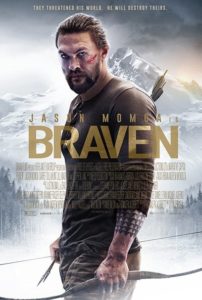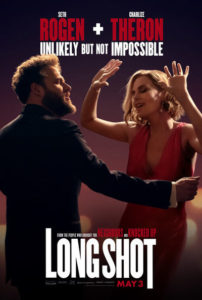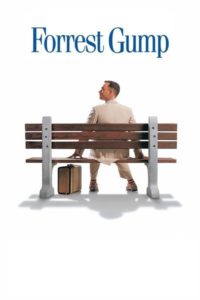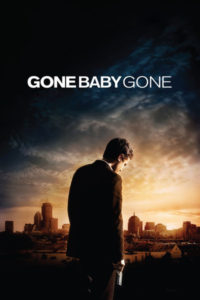 Braven
Braven is basically
On Deady Ground/Above the Law/Under Siege/Out for Justice or any Steven Seagal masterpiece of the early 1990s meets one of the best movies of all time (
Young Guns) meets one meets the best Christmas movie of all time (
Home Alone). And I don’t know if that sentence is a ringing endorsement or enough to get you to stop reading right now. In all honesty, it’s both. Lin Oeding’s feature-length debut,
Braven, is far from a perfect movie. It is very, very flawed. But it is also highly entertaining. If
Die Hard is your thing, then the Jason Momoa-led (
Aquaman, Justice League)
Braven will also be your thing. I can’t say you’ll love or remember much from it 24 hours later, but you will enjoy it, especially if you turn your mind off. Also, if he wants it, Momoa can be the new Segal, though he’s already proven he has more acting range than the former ever showed.
Continue reading Braven (2018) →
 Long Shot is a terrible title for a not-so-terrible movie. I won’t mention too much more about the title other than to say that it’s a difficult title to remember and to associate with a film about a Secretary of State (who isn’t really a long shot) and her political campaign and run for the presidency after the incumbent president decides that he won’t be seeking reelection. Nevertheless, Jonathan Levine’s political rom-com (50/50, The Night Before) packs in the laughs while cutting into today’s political landscape just enough to be edgy but not so over the top that it will divide audiences. Long Shot may not be remembered for its title. Still, it will be remembered for its intelligent, timely writing, witty banter, crunch-worthy predicaments, and solid performances from its two leads.
Long Shot is a terrible title for a not-so-terrible movie. I won’t mention too much more about the title other than to say that it’s a difficult title to remember and to associate with a film about a Secretary of State (who isn’t really a long shot) and her political campaign and run for the presidency after the incumbent president decides that he won’t be seeking reelection. Nevertheless, Jonathan Levine’s political rom-com (50/50, The Night Before) packs in the laughs while cutting into today’s political landscape just enough to be edgy but not so over the top that it will divide audiences. Long Shot may not be remembered for its title. Still, it will be remembered for its intelligent, timely writing, witty banter, crunch-worthy predicaments, and solid performances from its two leads.
 Long Shot is a terrible title for a not-so-terrible movie. I won’t mention too much more about the title other than to say that it’s a difficult title to remember and to associate with a film about a Secretary of State (who isn’t really a long shot) and her political campaign and run for the presidency after the incumbent president decides that he won’t be seeking reelection. Nevertheless, Jonathan Levine’s political rom-com (50/50, The Night Before) packs in the laughs while cutting into today’s political landscape just enough to be edgy but not so over the top that it will divide audiences. Long Shot may not be remembered for its title. Still, it will be remembered for its intelligent, timely writing, witty banter, crunch-worthy predicaments, and solid performances from its two leads.
Long Shot is a terrible title for a not-so-terrible movie. I won’t mention too much more about the title other than to say that it’s a difficult title to remember and to associate with a film about a Secretary of State (who isn’t really a long shot) and her political campaign and run for the presidency after the incumbent president decides that he won’t be seeking reelection. Nevertheless, Jonathan Levine’s political rom-com (50/50, The Night Before) packs in the laughs while cutting into today’s political landscape just enough to be edgy but not so over the top that it will divide audiences. Long Shot may not be remembered for its title. Still, it will be remembered for its intelligent, timely writing, witty banter, crunch-worthy predicaments, and solid performances from its two leads.
 It’s hard to think that in a three-year span, Tom Hanks (Big, Saving Private Ryan) went from playing an HIV-infected, highly successful business person who, despite being sick, filed a wrongful dismissal suit against his former employer (Philadelphia) to playing a man with an IQ of 75 who you manages to involve himself in just about every major American event between 1950 and 1980 (Forrest Gump) to the lead astronaut in the suspenseful true story landing of the Apollo 13 lunar mission when, after an oxygen tank explodes, the crew experiences numerous technical issues and tension with each other and the NASA base which, in turn, threatens their survival and safe return to earth (Apollo 13). This would be a defining career for many actors had they not appeared in other movies, but this was merely a three-year span (granted his most incredible three-year span) in Hanks’ career.
It’s hard to think that in a three-year span, Tom Hanks (Big, Saving Private Ryan) went from playing an HIV-infected, highly successful business person who, despite being sick, filed a wrongful dismissal suit against his former employer (Philadelphia) to playing a man with an IQ of 75 who you manages to involve himself in just about every major American event between 1950 and 1980 (Forrest Gump) to the lead astronaut in the suspenseful true story landing of the Apollo 13 lunar mission when, after an oxygen tank explodes, the crew experiences numerous technical issues and tension with each other and the NASA base which, in turn, threatens their survival and safe return to earth (Apollo 13). This would be a defining career for many actors had they not appeared in other movies, but this was merely a three-year span (granted his most incredible three-year span) in Hanks’ career.
 Ben Affleck’s (
Ben Affleck’s ( Braven is basically On Deady Ground/Above the Law/Under Siege/Out for Justice or any Steven Seagal masterpiece of the early 1990s meets one of the best movies of all time (
Braven is basically On Deady Ground/Above the Law/Under Siege/Out for Justice or any Steven Seagal masterpiece of the early 1990s meets one of the best movies of all time ( Inspired by actual events, Susanna White’s (Our Kind of Traitor, Nanny McPhee Returns) Woman Walks Ahead is a pretty good movie, but one made worse by its Hollywoodization. The film takes true events and changes them for no real reason. The general moviegoer would never have known the difference between what transpired and what was fictionalized. But the fact that there was a differentiation between fact and fiction didn’t do anything but cheapen the movie. One of the hardest things for me to do when reviewing a movie is trying to determine if the liberties that were taken to strip a film of its factual basis while still claiming to be based on a true story truly advance the movie past the point where it would have arrived to if it had just followed the facts.
Inspired by actual events, Susanna White’s (Our Kind of Traitor, Nanny McPhee Returns) Woman Walks Ahead is a pretty good movie, but one made worse by its Hollywoodization. The film takes true events and changes them for no real reason. The general moviegoer would never have known the difference between what transpired and what was fictionalized. But the fact that there was a differentiation between fact and fiction didn’t do anything but cheapen the movie. One of the hardest things for me to do when reviewing a movie is trying to determine if the liberties that were taken to strip a film of its factual basis while still claiming to be based on a true story truly advance the movie past the point where it would have arrived to if it had just followed the facts.